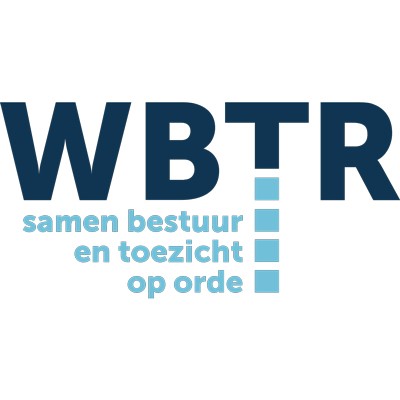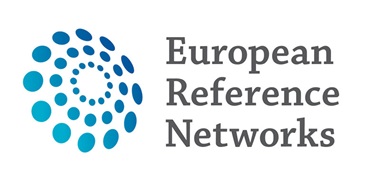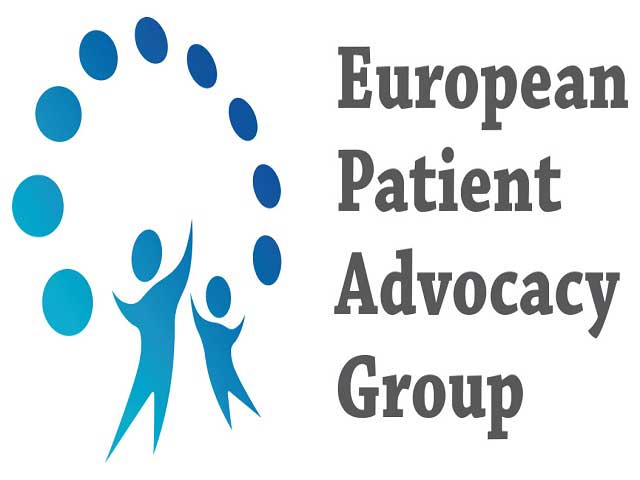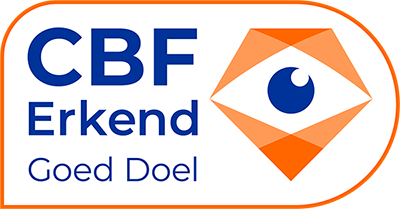The Act on Management and Supervision of Legal Persons (WBTR) deals with:
- Position and duties of board members and supervisors.
- The liability of board members and supervisors.
- Financial policies and approval of expenditures.
- Rules governing conflicts of interest.
- Procedures for major expenditures or investments.
The WBTR is a legal requirement for organisations and foundations. The law applies to all boards. By July 1, 2021, these must be met. It is important because not complying with the WBTR can have consequences for board members personally.
More information (WBTR website in Dutch)
In this article, we describe how we comply with the issues below:
- Good governance.
- Liability of board members.
- Conflict of interest.
- Absence of one or more board members.
- Multiple voting rights.
- Supervision.
- Binding nomination of directors.
- Advisory vote.
- Internal safeguarding and by-laws.
We have a procedure manual that includes an agreement that all board members and supervisors will act in the best interest of our organization. This means that we will act as directors and not as private individuals, both internally (within our organization) and externally (in relation to third parties).
- When making purchases, we will put the interests of our organization first. In situations that are important to our organization, we do not act on the basis of our personal preference but on the basis of what is good for our organization.
- We agree to act with integrity and transparency. That means: having an eye for the association’s interests and wanting to provide insight into decisions. We will publish the most important decisions in a way that the members can see how and which decisions have been taken.
- We have a code of conduct.
- We have a policy plan that includes the goals of our association. This states in specific terms what the plans are and how we want to achieve them.
- There is a good arrangement for our finances. We handle the spending of the association’s money consciously and will use it as much as possible to achieve the agreed-upon goals.
- We maintain a detailed budget and financial records whereby we compare the budget with actual expenses on a monthly basis and make adjustments based on this if necessary.
- There is a clear division of roles for the preparation and approval of the budget and financial statements, involving all board members. Ultimately these must be approved by the members, during our member’s conference in the Netherlands.
- We have created profiles for all roles within our organization. We use an application process in which two board members interview the candidate.
- We show the members the financial statements in time for them to give their opinion.
- We have a finance committee comprised of members who audit the accounts annually and report back to the members.
- In addition to our internal audit committee, we must submit an annual financial report to the Dutch Ministry of Health, Welfare and Sport. We also have the CBF certification, to which we also must submit our financial data. Finally, we have an external accountant who draws up our annual accounts and manages our financial administration.
- We have a clear procedure when undertaking financial commitments which is recorded in our internal procedure manual. This means that two board members must always agree to financial transfers. Furthermore, not only the treasurer, but at least one other board member always has insight into the current financial state of affairs and has access to the (bank) accounts.
- For expenses above € 5,000 we request at least 3 quotations from different suppliers. We discuss the quotations with the board and record the decision on the choice in the minutes.
With such assignments to suppliers, there is always a written order confirmation, so that afterwards it is always clear what was agreed upon.In certain cases, it is possible to deviate from the external quotation process. An example are website developments. We have been working with new website suppliers who developed our new website. As a result, they know both the website and our organization very well and, for example, expansions are carried out very effectively and efficiently. The use of another supplier means a new learning curve and can lead to contradictions between external parties which can be detrimental to our organization.
- We agree to handle investments with care. That means: we follow the proper procedures, especially with large expenditures. When making decisions, there must be a thorough substantiation of the need for the expenditure, as well as risk analysis, a sound (multi-year) budget, and reserves for future expenditure.
- We actively seek to prevent fraud and disagreement by having good procedures and agreements in place. We hold regular board meetings, draw up an agenda and record the most important decisions taken. We record who is present or absent at board meetings. Agreements are clearly and unambiguously formulated. The minutes are kept and made available to the members.
- We agree that we will deal consciously with risks to our organisation. We map which risks and apply risk management (based on Project Management).
- We check our agreements regularly for current affairs (at least once a year). These are recorded in our Procedure Manual.
- We do fall under a governance code. This concerns the code (Charities). We meet the requirements of the governance code.
- We are fully transparent as can be seen on our website. For example, we publish our annual accounts, articles of association, code of conduct, and conflict of interest approach.
- We have a complaints procedure and an independent Complaints Committee. Submitted complaints go directly to the Complaints Committee and not to the Board.
- Once every three years, we organize board elections where members can stand for election.
- We work with volunteer agreements that apply to all volunteers who carry out structural work and/or could possibly see personal data of our members and donors such as names and addresses.
Liability of board members
The performance of new board members is carried out in the period of 3 – 6 months after their appointment. This may be deviated from in certain cases such as in case of non-performance, violation of law/regulations/volunteer agreement/etc. In this case, the board member will be relieved of his/her duties immediately.
Current board members
- All current board members have been informed of the liability that may occur as a result of their position as board members of our organization.
- Board members remain within their assigned powers when performing their board duties. These powers are included in their profile.
- Board members act in accordance with the law, articles of association and any board regulations such as by-laws.
- During our members’ conference we discuss, among other things, the financial condition of our organization. We publish our annual accounts, prepared by an external auditor, our annual report and the budgets per calendar year on our website.
- Our organization complies with our (legal) accounting obligations. All legal entities, including our organization, have obligations towards the tax authorities.
- The board does not enter into agreements that our organization cannot fulfill. All agreements are assessed in advance by all board members.
- The board does not make payment promises and reports payment problems in a timely manner to the proper authorities and our members/donors if our organization has financial problems and is heading for possible bankruptcy.
- The board ensures that the organization complies with relevant laws, such as the General Data Protection Regulation.
The current board shall take care to inform new board members about, in particular:
- The financial condition of the organization.
- The powers of the new board member and the other board members. The powers of the new board member are defined in their volunteer agreement.
- Our internal procedure manual includes working agreements.
- The obligations of the board are based on the by-laws or regulations.
- The concluded directors’ and officers’ liability insurance with the coverage.
Retiring board members
Upon resignation from a board position, the board shall arrange the following matters:
- Resignation from the board position is clearly recorded.
- Communicate with members/donors and any other interested parties about the termination of the officer’s duties.
- De-register with the Chamber of Commerce.
- Discharge of board duties by the membership at the membership conference.
It may happen that it takes almost one year before this action can be taken while the officer is long gone by then. In this case, the other board members will grant discharge and this will be formally ratified at the membership conference.
- A proper transfer to the new director(s) of all duties, data, contacts, etc.
- Removal of access to all kinds of (digital) systems such as email, website and Google Suite environment.
In case of a sudden departure of the board member the above can be different. Under the WBTR it is not mandatory to include regulation in the articles of association on how to deal with conflicts of interest. It is mandatory to regulate this but it does not have to be included in the articles of association. We have regulated this issue for a long time: Conflict of interest
Our organization works with volunteers who, normally, perform their work in their free time. We also have volunteers who are patients themselves and therefore also experience physical/mental limitations.
This means that board members may be absent for a period of time, especially due to personal circumstances.
Within our organization, volunteering is not optional. We make clear agreements about such tasks in the volunteer agreements.
Due to unforeseen circumstances, it may occur that a board member, temporarily or not, cannot perform his/her duties. This is also described in our internal procedure manual.
When a board member is absent for a longer(*1) period than:
- Notifies the board member immediately to the other board members.
- Depending on the priority and importance of the tasks, the board determines what action should be taken when. Here the consideration should be based on the priority of any tasks to be transferred.
- If all board members are absent for a longer period of time then the membership conference should appoint at least two persons to take over the tasks.
- In the event that the number of board members is insufficient to make a decision, a vote will take place at the members’ conference.
- The agreements will be checked at least once a year for timeliness and relevance.
*1 = what is considered long period depends on the duties of the board member. The duties of a board member such as a treasurer should be assumed as soon as possible.
Multiple voting rights
Multiple voting rights are not applicable within our organization.
Supervision
Supervision of the actions of the board members is carried out by, in particular:
- Our members.
- Ministry of Public Health, Welfare & Sport (VWS).
- Central Bureau for Fundraising.
- External accountant.
- Internal audit committee.
Binding nomination of directors
Our internal rules set forth the procedure for the election of board members.
- Board members of our organization are appointed by a formal resolution at our membership conference.
- Our organization does not have binding nominations.
Advisory vote
- We always invite all directors to our General Membership Meeting.
- We allow directors to cast an advisory vote/opinion at our General Membership Meeting on proposed resolutions as required by the WBTR.
- We agree to review this agreement annually to see if this is all happening as we have agreed.
Internal safeguarding and by-laws
In our internal procedure manual, all processes and procedures are laid down. In addition, we also have internal regulations.
In terms of safeguarding, we refer to the ‘Supervision’ section in this article.
Our by-laws are our legal basis.






